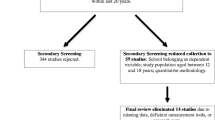Abstract
This article describes parameters of subcultural cultural differences among mainstream teachers and students. These subgroups are as attitudinally and behaviorally distinct as those grounded in ethnicity. They mandate from teachers the same concerns for differences in language, cognition, motivation, and behavior as those maintained for minority students. In the first section of this paper I discuss issues involved in definition of the term “mainstream.” Second, I examine some determinants of the types of subgroups which evolve in school communities. These include social class, age, life experiences, and activity patterns. Third, I discuss cultural change and external pressures on schools which act to exacerbate the determinants described earlier. These include technology, nuclear war, the devaluation of childhood, school size, and intergenerational changes in the American dream. Finally, I discuss teacher burnout as a form of culture shock and suggest anthropological training and insights as means to ameliorate the process.
Similar content being viewed by others
References
Almond, G., and Verba, S. (1963).The Civic Culture. Princeton, N.J.: Princeton University Press.
Apple, M. (1979).Ideology and Curriculum. (London: Routledge and Kegan Paul.
Anderson, C. A., and Bowman, M., eds. (1965).Education and Economic Development. Chicago: Aldine.
Aries, P. (1962).Centuries of Childhood: A Social History of Family Life. New York: Knopf.
Barker, R., and Gump, P. (1964).Big School, Small School. Stanford, Calif.: Stanford University Press.
Besag, F. P. (1984). Computer technology and learning culture. Invited paper presented at the American Anthropology Association Meetings, Denver.
Bourdieu, P., and Passeron, J. (1977).Reproduction in Education, Society and Culture. Richard Nice, transl. London: Sage Publications.
Bowles, S., and Gintis, H. (1977).Schooling in Capitalist America. New York: Basic Books.
Brice-Heath, S. (1983).Ways With Words. Cambridge: Cambridge University Press.
Caldicott, H. (1984).Missile Envy: The Arms Race and Nuclear War. New York: Morrow.
Callahan, R. (1962).Education and the Cult of Efficiency. Chicago: University of Chicago Press.
Charters, W. W. (1963). The social background of teaching. In N. L. Gage (ed.),The Handbook of Research on Teaching pp. 715–814. Chicago: Rand McNally.
Children's Defense Fund (1985). A children's defense budget: an analysis of the federal FY 1986 budget and children. Office of Governmental Affairs, Children's Defense Fund, Washington, D.C.
Coles, R. (1977).The Privileged Ones: The Well Off and the Rich In America Vol. 5 in The Children of Crisis Series. Boston: Little, Brown.
Dewey, J. (1916).Democracy and Education: An Introduction to the Philosophy of Education. New York: MacMillan.
Domhoff, W. (1967).Who Rules America? Englewood Cliff, N.J.: Prentice-Hall.
Durkheim, E. (1961).Moral Education Everett K. Wilson, transl. Glencoe, Ill.: Free Press.
Eisenstadt, S. N. (1956).From Generation to Generation. Glencoe, Ill.: Free Press.
Foster, P. (1965).Education and Social Change in Ghana. Chicago: University of Chicago Press.
Giroux, H. (1983). Theories of reproduction and resistance in the new sociology of education: a critical analysis.Harvard Educational Review 53(3): 257–293.
Kelly, G. P. (1984). Seeing what's there and what's missing and accounting for it: the contribution of comparative historical research. Invited paper presented at the Annual Meetings of the American Anthropology Association, Denver.
LaBelle, T. J. (1972). An anthropological framework for studying education.Teachers College Record 472(4).
LeCompte, M. D. (1978). Culture shock: it happens to teachers, too. In B. Dell Felder, et al. (eds.),Focus on the Future: Implications for Education. University of Houston.
Lortie, D. C. (1969). The balance of control and autonomy in elementary school teaching. In Amitai Etzioni, (ed.),The Semi-Professions and Their Organization pp. 1–54. New York: Free Press.
Lortie, D. C. (1975).School Teacher: A Sociological Analysis. Chicago: University of Chicago Press.
Mills, C. W. (1956).The Power Elite. New York: Oxford University Press.
Mowat, F. (1952).People of the Deer. Boston: Little, Brown.
Nash, M. (1967).Machine Age Maya. Chicago: University of Chicago Press.
National Coalition of Advocates for Students (1985).Barriers to Excellence: Our Children At Risk. Board of Inquiry Report, Boston, Mass.
Ogbu, J. U. (1978).Minority Education and Caste: The American System in Cross-Cultural Perspective. New York: Academic Press.
Ogbu, J. U. (1985). Variability in minority school performance: a problem in search of an explanation. Paper presented at the Annual Meetings of the Society for Applied Anthropology, March 18, 1985.
Resnick, L. (1985). Cognition and the curriculum. Invited address given for Division B of the American Educational Research Association Meetings, April 1985, Chicago.
Ritter, M. (1985). The myth of the gifted.The Houston Chronicle, January 20, 1985.
Stinchcombe, A. L. (1964).Rebellion in a High School. Chicago: Quadrangle Press.
Turnbull, C. M. (1972).The Mountain People. New York: Simon and Schuster.
Willis, P. (1977).Learning to Labour: How Working Class Kids Get Working Class Jobs. Farnborough, England: Saxon House.
Author information
Authors and Affiliations
Rights and permissions
About this article
Cite this article
LeCompte, M.D. Defining the differences: Cultural subgroups within the educational mainstream. Urban Rev 17, 111–127 (1985). https://doi.org/10.1007/BF01108252
Issue Date:
DOI: https://doi.org/10.1007/BF01108252




